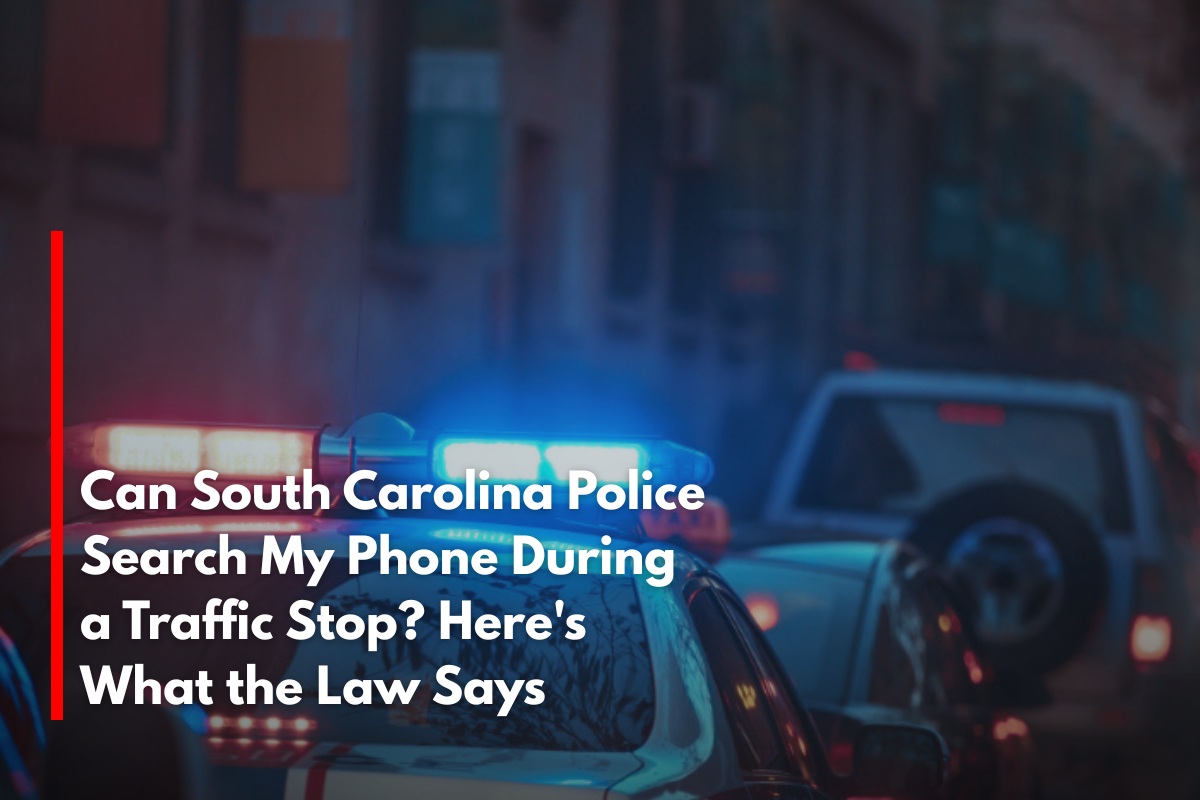Can South Carolina police search your phone during a traffic stop? The short answer is no, not without a warrant or probable cause. South Carolina law, along with U.S. constitutional protections, sets clear boundaries on police powers regarding cell phone searches during traffic stops.
The Fourth Amendment and Cell Phone Searches
The Fourth Amendment of the U.S. Constitution protects against unreasonable searches and seizures. This means that in most cases, police officers cannot search your phone without first obtaining a warrant based on probable cause. Your phone contains significant private information, and courts have recognized that it warrants heightened protection.
The landmark U.S. Supreme Court decision in Riley v. California (2014) explicitly held that police must generally obtain a search warrant before examining the contents of a cell phone seized during an arrest. This ruling applies to South Carolina and restricts warrantless phone searches during traffic stops as well.
When Can Police Search Your Phone?
In South Carolina, police may only search your phone without a warrant if:
You consent to the search voluntarily.
There is probable cause to believe the phone contains evidence of a crime, and exigent circumstances exist (e.g., imminent threat or risk of evidence destruction).
You are under lawful arrest, and the police seize your phone incident to that arrest—but even then, a warrant is typically needed to access the phone’s contents.
In the absence of these conditions, forcing a search or accessing your phone without a warrant violates your Fourth Amendment rights.
What Should You Do During a Traffic Stop?
During a traffic stop in South Carolina:
Remaining calm and cooperative while asserting your rights is crucial. Consent or silence does not imply consent, so clearly stating your refusal helps protect your rights.
Vehicle Searches vs. Phone Searches
Police can search your vehicle during a traffic stop only if they have probable cause or a warrant. The standards for searching a vehicle are different from that of electronic devices like phones, which hold much more private and sensitive information.
Even if the police lawfully seize your phone, they generally require a warrant to search its data. The courts recognize that phones store vast amounts of personal information, and warrant protections are stronger here compared to a vehicle or physical search.
Summary
In South Carolina, police cannot legally search your phone during a routine traffic stop without a warrant or your explicit consent. The Riley v. California Supreme Court case clearly affirms your right to privacy concerning digital data on your phone. To protect your rights:
Do not hand over your phone or unlock it without a warrant.
Politely refuse any search requests.
Know your right to remain silent.
Contact an attorney promptly if you believe your rights were violated.
Being informed and assertive protects your privacy and ensures police adhere to constitutional law during traffic stops in South Carolina.
Sources
(https://www.govtech.com/public-safety/can-police-search-your-phone-during-a-traffic-stop)
(https://www.shouselaw.com/ca/defense/search-and-seizure/phone-searches/)
(https://www.joshgolsonlaw.com/blog/rights-in-traffic-stop-in-south-carolina/)
(https://shealeylaw.com/rights-during-a-traffic-stop/)
(https://lorimurraylaw.com/what-are-your-rights-during-a-traffic-stop/)











